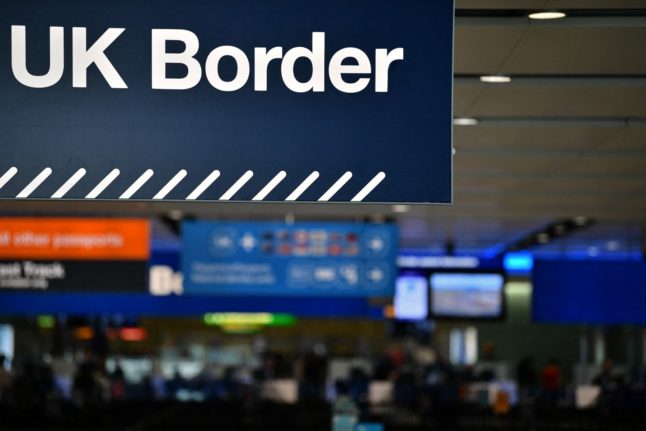December 31st, 2020
The transition period that has been in place since Britain left the EU on January 31st, 2020 – and kept most things the same – comes to an end on December 31st.
This date marks the last day that British nationals can take advantage of freedom of movement. They must be resident in Sweden if they wish to take advantage of the more generous provisions of the Withdrawal Agreement, which guarantees right to residency, work and life-long health cover.
But even if they are resident in Sweden by the end of the year, moving elsewhere in Europe after December 31st won't be as easy because onward freedom of movement comes to an end at the stroke of midnight.
Current European Health Insurance Card (EHIC) issued by the UK are only valid until December 31st. S1 holders and students living in Sweden are encouraged to apply for a new EHIC card. It should state on the card that it is valid in Sweden. People who already have a European card issued by their host country do not need to renew it.
A ban on commercial flights from the UK to Sweden is set to expire on December 31st, but please note below that as of January 1st, you may have to show a negative coronavirus test before entering the country.
January 1st, 2021
This is the big one, the first day that the UK emerges into the world without any formal ties to the EU, apart from the trade deal that was agreed on at the 11th hour.
It marks a lot of changes for British tourists, who will have to follow new rules if they want to visit Sweden. You can read more about what applies to visits to Sweden here (these rules apply to visitors, not to British people who are already resident in Sweden).
January 1st also marks the day when UK passports will no longer be accepted for travel within the EU if they have less than six months until their expiry date – so check your passport and renew if necessary.
From January 1st, all but Swedish nationals and people who transport goods will have to show a negative coronavirus test, taken at the most 72 hours before arriving in Sweden. You can read more here.
From January 1st, 2021
British driving licences will still be valid in Sweden after the transition period ends on December 31st, regardless of whether or not the holder already lives in Sweden. Brits who live in Sweden will also be able to continue using their licence in Sweden, even if they have been living in Sweden for more than a year (normally non-EEA licences will only remain valid for up to a year after you've registered as a Swedish resident).
It is worth noting that UK licences are connected to a UK address, so Brits may still need to exchange them if they decide to live in Sweden in the long term. It will not be immediately possible after January 1st to simply swap out your licence without having to sit a driving licence test again (which most non-EEA licence holders have to do), but the Swedish government has told The Local that it is working on a solution for this.
“The goal is that a solution will be in place by July 1st, 2021. What the solution will look like is not yet clear,” a spokesperson for the transport ministry told The Local in November.
January 21st, 2021
A temporary entry ban on people travelling from the UK – imposed due to a new strain of coronavirus detected in the UK at the end of 2020 – is set to expire on January 21st. Swedish citizens and other people travelling from the UK who live and work in Sweden are exempt, so they can still travel freely between the countries. But please note that non-Swedish nationals will be required to show a negative coronavirus test.
March 31st, 2021
Keeping track of all the various travel restrictions is no easy feat, but there's also a separate entry ban for non-EU countries which will also apply to Brits in the new year, after the post-Brexit transition period ends. This is currently in place until March 31st, but Brits who are entitled to residence status in Sweden will be exempt.
September 30th, 2021
Brits who wish to apply for a new residence status to protect their long-term right to stay in Sweden post-Brexit have been able to do so since December 1st.
British citizens who need to apply for a new residence status should fill out one of those forms, and send in a copy of their passport or national ID card, and documents that show that you have the right of residence in Sweden. You can read more here, and see what documents you need to show the Migration Agency here.
The application must be submitted before September 30th, 2021.
October 1st, 2021
This marks the date when EU national identity cards will no longer be valid to enter the UK. This doesn't directly affect British people, but if you are travelling to the UK with a Swedish friend or family member who doesn't have settled status in the UK, remind them that they will need a passport after this date and not a national ID card.
March 2022
This is the final date when British nationals can move back to the UK with a European partner or spouse without them having to meet tough new criteria on income, skills and English language level.
After this date any EU citizen must meet strict immigration criteria including a minimum income level – and having a British spouse will not affect this.
Have we missed any key dates? Please email [email protected]



 Please whitelist us to continue reading.
Please whitelist us to continue reading.
Member comments